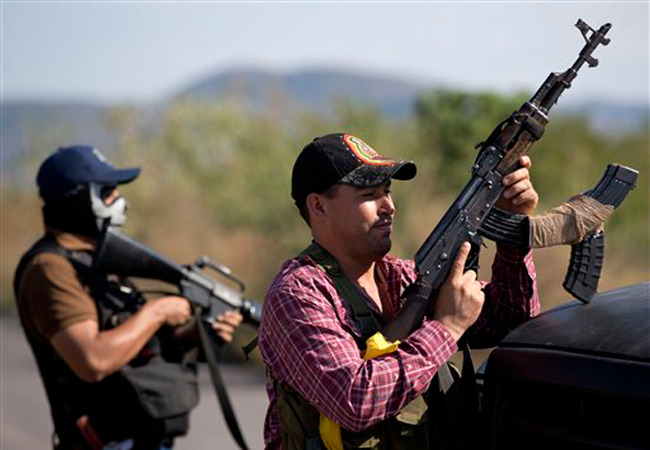The second day of the Senate Judiciary Committee confirmation hearings for Loretta Lynch featured nine witnesses who touched upon a number of things. There were the "Loretta was a great US Attorney and I felt fortunate to work with her comments" from
attorney David Barlow and former
FBI Assistant Director in Charge Janice Fedaryck. There was the "Loretta comes from a good Baptist family" testimony by
Rev. Dr. Clarence Newsome. There was the testimony from
law professor Stephen Legomsky that said he was "the" expert on immigration law and Obama's actions on making illegal aliens legal was OK with him.
Then there was what I consider the meat of the day: the witnesses who described just bad the Department of Justice has gotten, how it has screwed people over, and how it has looked the other way at the abuses of power by the White House.
Catherine Englebrecht of True the Vote described how the dogs of war were unleashed on her when she filed applications for non-profit status for two organizations. These "dogs of war" include the IRS, OSHA, the FBI, and BATFE.
Sheriff David Clarke of Milwaukee discussed how the Department of Justice under Eric Holder was actively hostile to local law enforcement. He discussed how Holder and DOJ made the situation in Ferguson, Missouri worse by inserting itself where it had no business.
Professor Nicholas Rosenkranz of Georgetown and the Cato Institute spoke about the role of the Attorney General in providing legal advice to the President and how Eric Holder has failed in this regard.
Then there was the testimony of Sharyl Attkisson and Professor Jonathan Turley. They were the bookends, so to speak, as they began and ended the testimony for the day.
Leading off was Ms. Attkisson who described how she had been targeted by the Justice Department for her factually accurate reporting on
Operation Fast and Furious (among other things).
When I reported on factual contradictions in the administration’s accounts
regarding Fast and Furious, pushback included a frenzied campaign with White
House officials trying to chill the reporting by calling and emailing my superiors and
colleagues, and using surrogate bloggers to advance false claims. One White House
official got so mad, he angrily cussed me out.
The Justice Department used its authority over building security to handpick
reporters allowed to attend a Fast and Furious briefing, refusing to clear me into the
public Justice Department building.
Advocates had to file a lawsuit to obtain public information about Fast and Furious
improperly withheld under executive privilege. Documents recently released show
emails in which taxpayer paid White House and Justice Department press officials
complained that I was “out of control,” and vowed to call my bosses to try to stop my
reporting.
Let me emphasize that my reporting was factually indisputable. Government
officials weren’t angry because I was doing my job poorly. They were panicked
because I was doing my job well.
While the testimony of Ms. Attkisson was damning, I think the
testimony of Prof. Jonathan Turley of George Washington University was even more damning of the Justice Department under Eric Holder. Turley admitted he voted for Obama and supported many of the Administration's policies. Turley is a DC insider. He
appears on Sunday morning talk shows, he
writes op-eds, he goes to the insider cocktail parties, and he rubs elbows with the powers that be.
Turley submitted a 26-page written testimony accusing the Justice Department of being the architect of the effort to expand the power of the presidency beyond what was Constitutional. He says that they actively attempt to block legislative authority and Congressional oversight. The most egregious example of this, in Turley's opinion, and the one that best captures the obstruction of Congress in recent years is Operation Fast and Furious. Turley devotes seven pages of his testimony to it.
However, the controversy that best captures the obstruction of Congress in recent years is
the response of the Obama Administration in the Fast and Furious investigation. The
reason that Fast and Furious is particularly illustrative is for a couple of salient factors.
First, no one (not even General Holder) defends the Fast and Furious operation, which
proved as lethal as it was moronic. It is a prototypical example of a program that is
legitimately a focus of congressional oversight authority. A federal agency was
responsible for facilitating the acquisition of powerful weapons by criminal gangs,
including weapons later used to kill United States Border Patrol Agent Brian Terry in
December 2010. Congress has investigated not only the “gunwalking” operation, but
also what it saw as concealment and obstruction, by the Administration, in its efforts to
investigate the operation. Second, Congress had ample reason to expand its investigation
after the Justice Department sent a letter on February 4, 2011 stating categorically that no
gunwalking had taken place. It was not until December 2011 that Attorney General Holder informed Congress that it had been given false information and the letter was
formally withdrawn. Congress responded by expanding the investigation into the false
information given to it by the Executive Branch and the months of delay before Congress
was informed of the misrepresentation of the facts underlying Fast and Furious. Finally,
the position of the Justice Department on withholding documents has, in my view, been
facially invalid and lacking in any credible good-faith interpretation of the executive
privilege.
Turley goes on to say that one of the most troubling aspects of the Justice Department's behavior has been its refusal to prosecute the House of Representative's contempt citation against Eric Holder.
One of the most troubling aspects of the Fast
and Furious investigation was not just the withholding of non-privileged material but the
later refusal of the Justice Department to submit the alleged violation to a grand jury—
despite a historic vote of the House of Representatives finding General Holder in
contempt. The decision to block any prosecution was a violation of a long-standing agreement between the branches and represents a serious affront to the institutional
authority of this body.
He goes on to attack the Obama Administration's circular reasoning cited for withholding requested documents saying "I have had criminal defense clients
who would only envy such an ability to cite the basis for a criminal charge as the defense
to a criminal charge."
I don't think any of the testimony given in day two of the hearings will derail Ms. Lynch's confirmation as the next Attorney General. I really have no doubt that she will be confirmed. I see this testimony as more an airing of grievances and an attempt to put the Administration on notice that a Republican-majority Senate - unlike the Democratic-majority Senate run by Sen. Harry Reid (D-NV) - is watching them.























